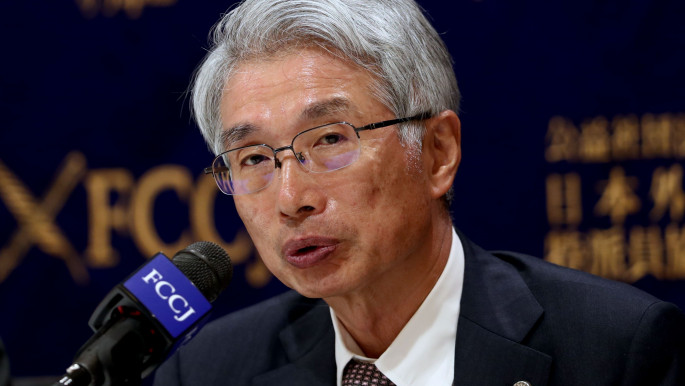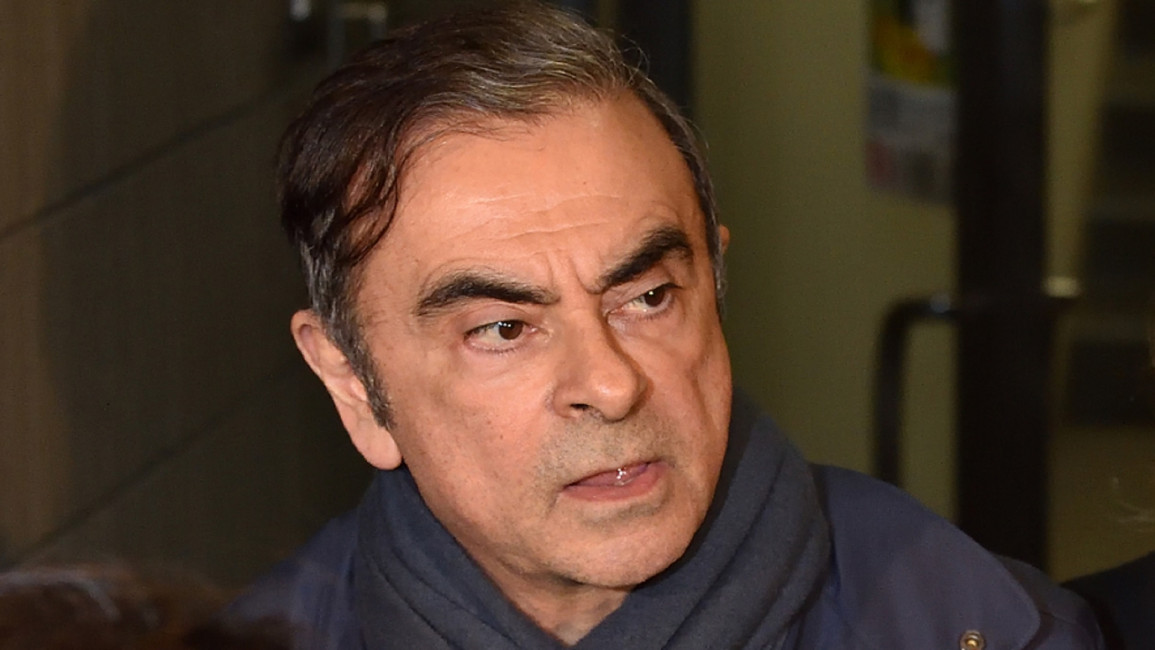Ghosn flees to Lebanon and accuses Tokyo of holding him 'hostage'
Ghosn, who touched down in Beirut on Monday, had been released on bail by a Tokyo court while awaiting trial but was not allowed to travel overseas.
He disclosed his location in a statement through his representatives that did not describe how he left Japan, where he had been under surveillance. He promised to talk to reporters next week.
"I am now in Lebanon and will no longer be held hostage by a rigged Japanese justice system where guilt is presumed, discrimination is rampant, and basic human rights are denied, in flagrant disregard of Japan's legal obligations under international law and treaties it is bound to uphold," the statement said.
Japanese media quoted prosecutors speaking anonymously who said they did not know how Ghosn had left.
Ghosn, who is of Lebanese origin and holds French, Lebanese and Brazilian passports, was arrested in November 2018 and was expected to face trial in April 2020.
The Nissan chief was initially questioned on underreporting his income among other charges, and the carmaker launched an internal investigation that uncovered "substantial evidence of blatantly unethical conduct" but the former chairman, who ran three huge car companies.
Read More: From Lebanon to Kashmir: The New Arab's 10 biggest stories of 2019
He has already been stripped of his position on the board at Nissan and resigned from the head of Renault as well as the three-way alliance the two companies share with Mitsubishi Motors.
Prosecutors fought his release, but a court granted him bail with conditions that he be monitored and could not meet with his wife, Carole, who has also been questioned by prosecutors in Tokyo.
Japan does not have an extradition treaty with Lebanon. It is unclear what steps authorities might take.
Ghosn has repeatedly asserted his innocence, saying authorities trumped up charges to prevent a possible fuller merger between Nissan Motor Co and alliance partner Renault SA.
Junichiro Hironaka, Ghosn’s lawyer told reporters Tuesday afternoon that he was stunned that Ghosn had jumped bail and denied any involvement in or knowledge of the escape.
He said the lawyers had all of Ghosn's three passports and was puzzled by how he could have left the country.
The last time he spoke to Ghosn was on Christmas Day, and he has never been consulted about leaving for Lebanon, Hironaka told reporters outside his law office in Tokyo.
"Maybe he thought he won't get a fair trial," Hironaka said, stressing that he continues to believe Ghosn is innocent. "I can't blame him for thinking that way."
Japan is well-known for its 99 per cent conviction rate. Nearly all criminal cases that go on trial in Japan end in a guilty verdict.
 |
| Ghosn's lawyer says he doesn't know how the car magnate skipped the country [Getty] |
Ghosn had posted 1.5 billion yen ($14 million) bail on two separate releases and had been rearrested on additional charges after an earlier release.
Earlier, Ricardo Karam, a television host and friend of Ghosn, told the AP that Ghosn arrived in Lebanon on Monday morning.
"He is home," Karam said in a message. "It's a big adventure."
Karam declined to elaborate.
The Lebanon-based newspaper Al-Joumhouria said Ghosn arrived in Beirut from Turkey aboard a private jet.
The French government reacted with both surprise and confusion.
"Mr. Carlos Ghosn is not above the laws, be they French or Japanese," said Agnes Pannier-Runacher, a junior finance minister. But she added that "he has French nationality and we owe him consular support, as we owe all French nationals".
Speaking to broadcaster BFM-TV, she said, "I was surprised as you when I learned about this escape."
Ghosn's rise and catastrophic fall has been the topic of much interest in the news. The Lebanese businessman was credited with leading a spectacular turnaround at Nissan beginning in the late 1990s, rescuing the automaker from near-bankruptcy.
People in Lebanon took special pride in the auto industry icon, who speaks fluent Arabic and visited the country regularly.
Born in Brazil, where his Lebanese grandfather had sought his fortune, Ghosn grew up in Beirut, where he spent part of his childhood at a Jesuit school.
Nissan did not have immediate comment Tuesday. The Japanese automaker of the March subcompact, Leaf electric car and Infiniti luxury models has also been charged as a company in relation to Ghosn's alleged financial crimes.
Japanese securities regulators recently recommended Nissan be fined 2.4 billion yen ($22 million) over disclosure documents from 2014 to 2017.
Nissan has said it accepted the penalty and had corrected its securities documents in May
The company's sales and profits have plummeted and its brand image is tarnished, prompting it to acknowledged lapses in its governance and has promised to improve its transparency.
Another former Nissan executive, Greg Kelly, an American, was arrested at the same time as Ghosn and is awaiting trial. He has said he is innocent.
The charges Ghosn faces carry a maximum penalty of 15 years in prison.



